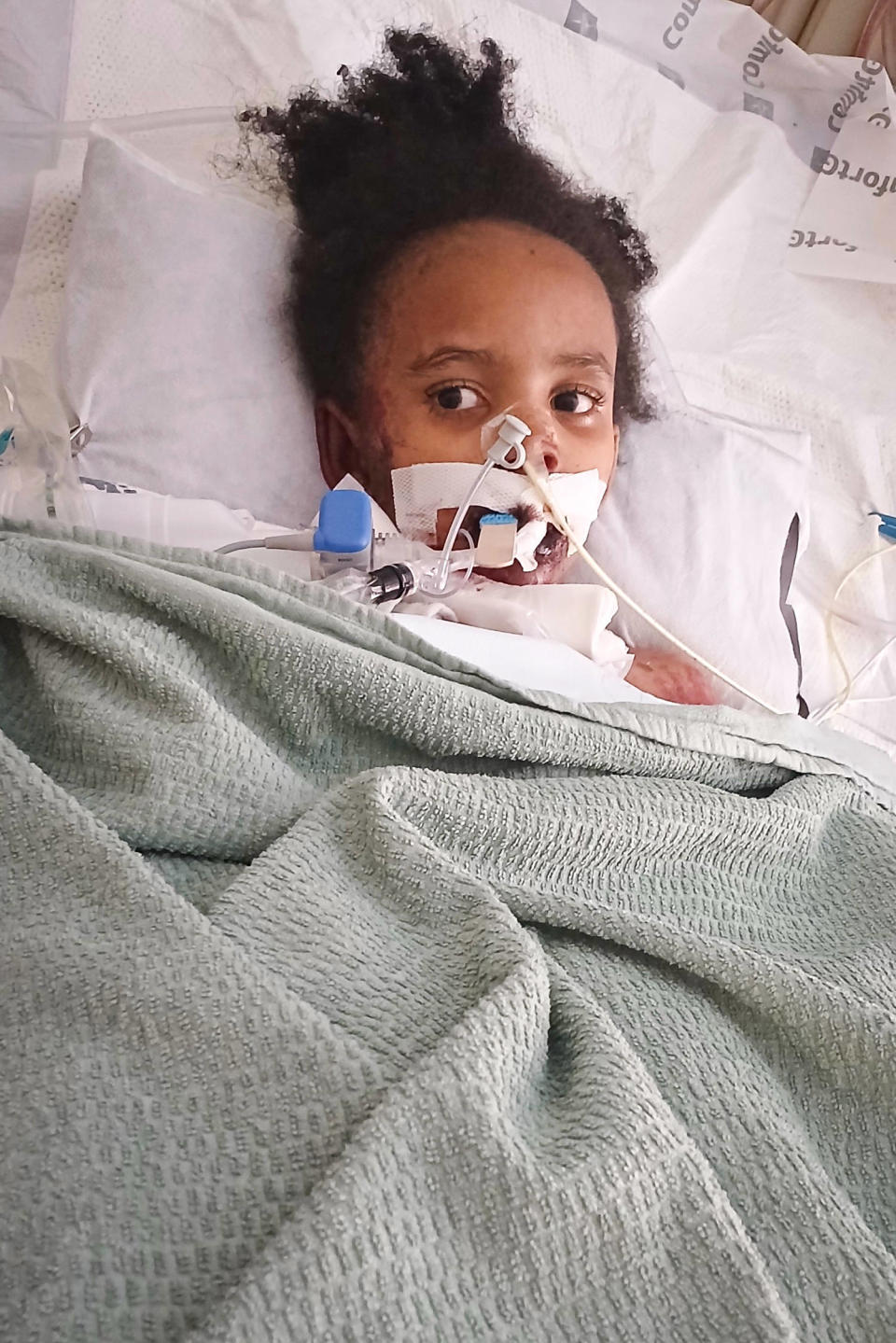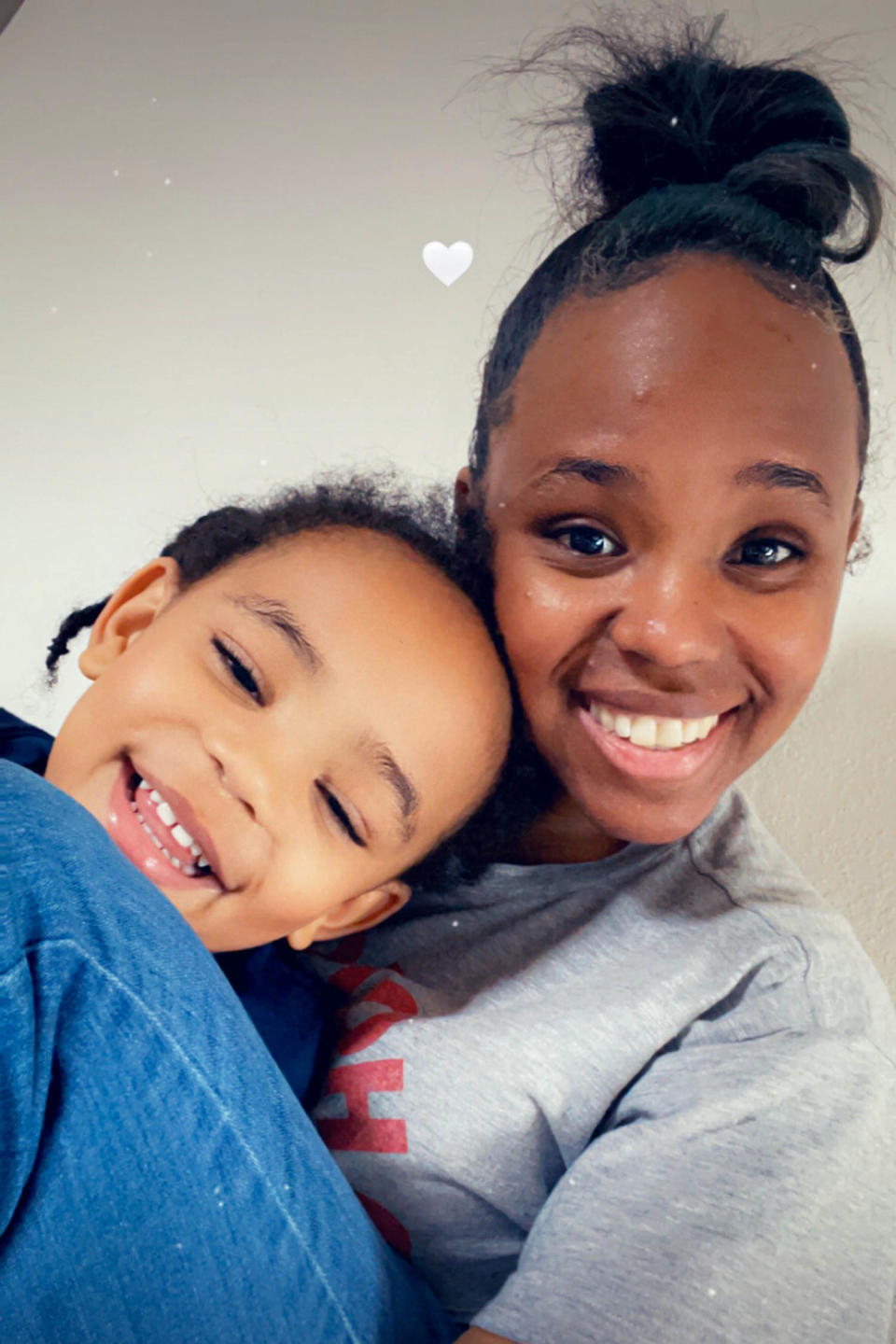DENVER — The family of a 4-year-old boy whose heart had stopped beating hours earlier gathered at Children’s Hospital Colorado last month to say their final goodbyes to Cartier McDaniel.
Some slept in the waiting room when they weren’t praying at Cartier’s bedside after doctors told his parents, Destiny Anderson and Dominique McDaniel, that it was only a matter of time before his life support machine wouldn’t be able to keep his body functioning properly without a heartbeat.
All attempts to restart his heart had failed.
“It was the worst moment of my life. The whole hospital room was spinning. I was shaking. I couldn’t believe it was happening,” Anderson said.
But in nothing short of a medical miracle to Anderson and McDaniel, their young son’s heart began pumping on its own again, 19 hours after it had stopped.
Anderson and McDaniel said doctors told them that they didn’t have a scientific or medical explanation for why Cartier’s heart began beating again. Doctors on Cartier’s medical team were unavailable for comment this week, the hospital said.
But McDaniel said he had a spiritual explanation: “It was God.”
Cartier’s ordeal began April 8, when he ran a fever that Anderson treated with Tylenol.
“I thought it was a cold and would go away,” she said.
The next day, his condition worsened. His hands and feet became cold, his mouth turned blue, he sweated, dark circles formed around his eyes and his breathing was labored.

He drank lots of water that day and stayed in bed, which Anderson thought was odd because he’s usually an active, inquisitive child.
She knew something was really amiss when Cartier wet his bed, she said.
She called the nursing line for Children’s Hospital Colorado, which upon hearing the symptoms recommended he go to the hospital immediately.
During diagnostic testing for ailments such as diabetes, Cartier’s eyes rolled to the back of his head and doctors couldn’t find a pulse, Anderson and McDaniel said. They said he had gone into cardiac arrest.
They began administering CPR, to no avail. Anderson helplessly looked on.
“The doctors were pressing on his chest,” she said. “I started crying and getting hysterical.”
Medical staff escorted her out of the emergency room.
Cardiac arrest occurs when the heart suddenly and unexpectedly stops pumping and blood stops flowing to the brain and other vital organs, according to the National Institutes of Health.
It causes about 300,000 to 450,000 deaths in the U.S. each year, the agency said.
Survivors of cardiac arrest can suffer from brain damage and internal organ injuries, according to the Centers for Disease Control and Prevention.

In 2019, British hiker Audrey Schoeman, 34, survived what doctors have called the longest cardiac arrest in Spain’s history after her heart stopped for six hours in a snowstorm, according to Today.com.
Unlike McDaniel, she did not receive immediate medical attention but somehow survived.
Emergency room doctors had diagnosed McDaniel with an infection caused by group A Streptococcus, or strep A, bacteria. Cartier’s parents said they didn’t know what infection their son may have suffered beyond this description, although strep A can cause various infections from strep throat to scarlet fever.
The condition led to sepsis — the body’s extreme response to an infection — they said.
Each year in the U.S., more than 75,000 infants and children develop severe sepsis, according to the American Academy of Pediatrics. Almost 7,000 of them die, more than the 1,800 children who die of cancer each year, according to Alex’s Lemonade Stand Foundation, a pediatric cancer charity.
When Cartier’s heart stopped, doctors placed him on a form of life support in which blood is pumped through an artificial lung, where oxygen is added and carbon dioxide is removed, his parents said.
The treatment temporarily keeps a patient alive even if the patient’s heart isn’t working, but doctors must determine whether the organs and other parts of the body will recover, said Dr. Michael Fundora, a pediatric cardiologist at Children’s Healthcare of Atlanta who was not involved in Cartier’s care and did not review his medical records.
Medical personnel spent 30 minutes trying to revive McDaniel as his bloodstream was being attacked by strep A, his parents said. Cartier was then moved to the intensive care unit.
“At that point, we’re just praying for the best,” Anderson said.
Doctors told the family that Cartier wasn’t likely to survive.
“He was on life support but it was only a matter of time before the machine stopped working,” Anderson said doctors told her.

That night, other family members went to the hospital to say goodbye to the 4-year-old, described by his parents as a “natural protector” who looks forward to thrill-seeking adventures, like finding spiders and playing games at the arcade.
“I’m not going to lie, I did have doubts that everything was going to be OK. I’m human,” said Anderson, who has six other children, including three with McDaniel. “I’m thinking, ‘How am I going to tell my kids I’m not bringing their brother home?’”
“I was trying to make peace that this may be what God wants.”
Leaning on her faith, she said she asked God to be with her son.
Soon afterward, Cartier’s heart began beating.
Initially, doctors believed Cartier would be blind because the part of the brain that regulates vision was damaged by a lack of oxygen, his parents said. But doctors later changed their prognosis and said he would retain his vision, they said.
He remains on dialysis and breathing tubes and has undergone multiple skin graft surgeries after the infection deteriorated his skin.
Daniel A. Velez, division chief of cardiothoracic surgery at Phoenix Children’s Hospital, said the quick-moving hospital staff in Colorado apparently managed to provide a level of oxygen to Cartier’s brain that gave him a chance to survive.
“The breathing was somewhat resumed,” said Velez, who was not involved in Cartier’s care and did not review his medical records. “It was a remarkable recovery.”
Velez said Cartier’s long-term prognosis is unclear because the ability of a child’s developing brain and kidneys to rebound is often unpredictable.
He also may have suffered damage to other organs, Fundora said.
For now, his parents said, there’s no timetable for Cartier’s release from the hospital.
Anderson said she blames herself for not taking him to the hospital sooner, as McDaniel suggested.
“If I would have waited any longer, it would have progressed,” she said. “I waited too long.”
This article was originally published on NBCNews.com